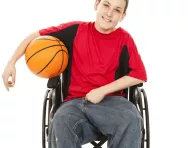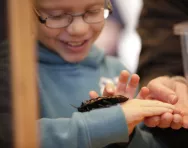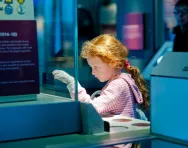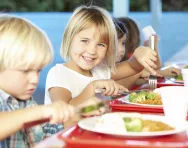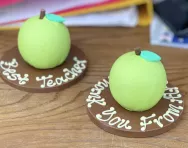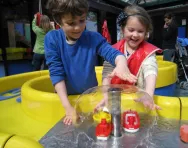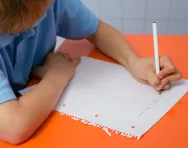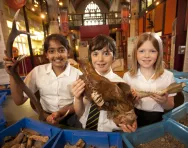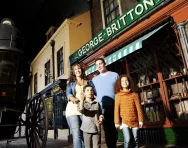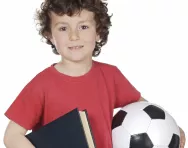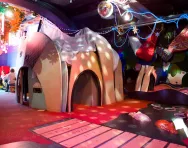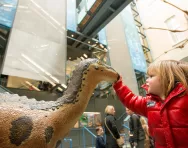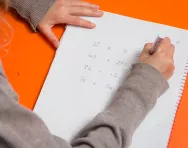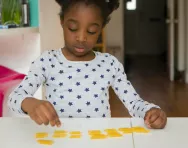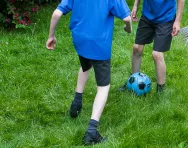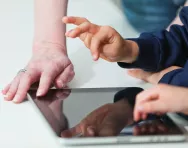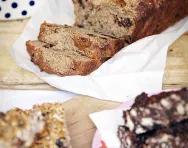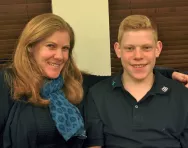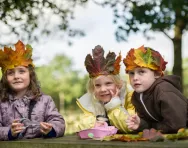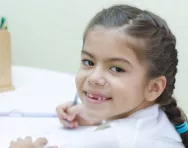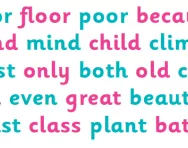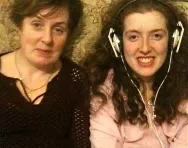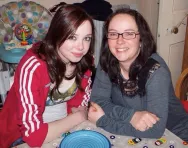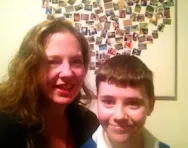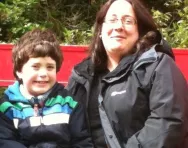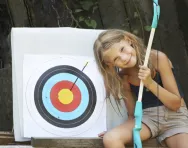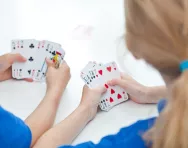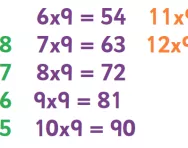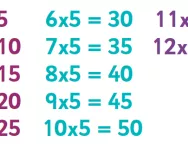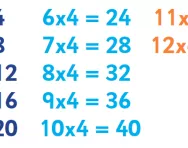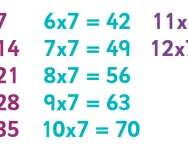Active and inclusive: PE provision for children with disabilities
Andrew Shields examines PE provision for children with disabilities and highlights the opportunities that now exist to play sport both in school and outside the classroom.
Museums reviewed by parents: Manchester Museum
Travel back in time to Ancient Egypt, see reptiles and amphibians from Costa Rica, walk beneath a giant whale skeleton, come face-to-face with a tiger and meet a life-size Tyrannosaurus rex... just a few of the highlights of a visit to Manchester Museum. Our family testers report back.
Museums reviewed by parents: Museum of Liverpool
Dress up as a dock master, play in a pint-sized port, explore first- and third-class travel in Victorian times and fall in love with the sounds of the 1960s... it's all waiting for you (and it's free!) at the Museum of Liverpool. Our parent review highlights the child-friendly activities on offer.
5 learning activities for summer weather
Summer is finally here! Make that wonderful, warm globe of loveliness in the sky into a fantastic learning aid with our hands-on activities, perfect for whiling away the hours on a hot afternoon.
Free school meals: your questions answered
Since September 2014 all children in Reception, Year 1 and Year 2 have been entitled to a free school meal at lunchtime, plus some children in KS2 and beyond. But what's on offer, and what if your child prefers packed lunches? We answer all your questions.
Best teachers' gifts
A teacher can change a child's life – and attitude to learning – forever. We've found some of the most original (and delicious) ways to say thank you to the person who has enriched your child's school year, whatever your budget. Chocolate and biscuits, personalised bags, mugs and accessories, charity donations and more – all great tokens of your appreciation for the work of an inspirational teacher.
Museums reviewed by parents: Look Out Discovery Centre
Build a dam, tile a roof, shake your own hand (in an optical illusion) and build a 3D puzzle of the human body − there's all this (and more) to discover at the Look Out Discovery Centre in Bracknell. Read our parent review to find out more.
5 ways to turn your child into a budding writer
While some children love nothing more than sitting down with a blank sheet of paper and a pen, others are filled with dread at the thought of writing much more than their name at the top of their worksheet. Teacher and author Alison Wilcox shares her tips for encouraging the writing bug.
Museums reviewed by parents: DIG
Dig, delve and discover objects and stories from the past at York's wonderfully interactive DIG, a real archeological adventure for children (and adults). We give it our parent-tested seal of approval!
Museums reviewed by parents: York Castle Museum
The UK's museums offer world-class learning experiences for children and families and our parent reviews highlight some of the best. At York Castle Museum your family can travel back in time to the sights, sounds and smells of Victorian England (remember to buy a pink sugar mouse to munch on as you explore!).
Best kids' books about football
Would your child rather be kicking a ball than picking up a book? Get them excited about reading with fiction and non-fiction titles about the beautiful game, from World Cup histories and step-by-step technique manuals to brilliant football fiction for all ages.
Museums reviewed by parents: York's Chocolate Story
Bring learning to life with a visit to one of our parent-recommended museums and experiences. For a delicious, immersive visit into the world of chocolate, take a guided tour at York's Chocolate Story.
Museums reviewed by parents: Discover Children's Story Centre
Bring learning to life with a visit to one of our parent-recommended museums. We love Children's Story Centre Discover, a haven for bookworms, story-tellers and adventurers in Stratford, north east London.
Museums reviewed by parents: World Museum Liverpool
Our parent-recommended museums make bringing learning to life easy and fun. For the chance to explore creatures and people from our past and our present, head to World Museum Liverpool (just watch out for the giant spider!).
Primary-school grading system explained for parents
A new grading system to replace national curriculum levels was introduced into English primary schools in 2014. We explain what parents need to know about primary school assessment levels as well as KS1 and KS2 SATs and the new Reception Baseline Assessment.
10 brilliant primary-school maths aids
Children often learn faster if they are allowed to use practical equipment to support them. Primary teacher Angela Smith explains what maths aids your child might find in the classroom, and how you can also use them at home to help your child practise important numeracy skills with hands-on, practical activities.
Museums reviewed by parents: The Geffrye Museum of the Home
Bring classroom learning to life with a visit to one of our parent-recommended museums, or explore the website to explore from afar. For hands-on fun and a fascinating trip through our Tudor and Victorian past we love the Geffrye Museum of the Home in London.
Is your child a sports star?
Identifying your child as a high achiever in PE and sport will help to make the most of their ability – but Andrew Shields cautions against believing that stardom beckons.
Why games-based learning is great for your child
If you despair of the amount of time your child spends attached to their tablet, think again: games and apps are an important part of their learning journey, from pre-school to secondary school, and can help to improve problem-solving skills and communication, as well as boost motivation. Lucy Dimbylow finds out why gaming means learning in the twenty-first century.
7 easy energy-boosting after-school snacks
After school the first words to come out of most children's mouths are "What have you brought me to eat?". Sort out the hunger pangs, energy slumps and general moodiness with some healthy but delicious snacks as suggested by Kate Percy, author of Go Faster Food for Kids and mum of three.
'He struggled to form his letters correctly and his handwriting was illegible'
Cécile Watson, from Bromley in Kent, describes her experience of the SEN and school system with her son Jean-Pierre, 11, who has dysgraphia, and shares her tips for other parents.
"He had problems counting up in twos, fives and even tens"
Lillian Blundell, from Bath, describes her experience of the SEN and school system with her son Robbie, 16, who has dyscalculia, and shares her tips for other parents.
6 learning activities for spring weather
Welcome the new season with these spring children's activity ideas from Juno Hollyhock from Learning through Landscapes. Wellies on, gloves off, coats fastened – time to run out into the spring sunshine!
11 easy tips to make Shakespeare fun for kids
You don't have to be a theatre buff or a classic-literature lover to appreciate Shakespeare's wonderful stories, compelling characters and beautiful language. We say it's never too early to introduce children to the Bard, so here are 11 great ways to help under-12s fall in love with his verses.
Primary school coding explained for parents
Computer code classes, part of the 2014 primary curriculum, aim to teach kids not to be simply users of technology, but creators of it too. Kate Yelland explains what parents need to know.
Coping strategies to help autistic children
Schools can be complicated places for children, teachers and parents. Autism practitioner Gina Davies explains that there will invariably be challenges when autistic children start and attend school, but strategies that enable parents and teachers to work in partnership can be very successful.
What are exception words?
As your child learns to read you might hear them talk about the 'exception words' they are learning. We explain what exception words are, what role they play in phonics learning and how you can support your child's developing reading and spelling skills at home.
What is figurative language?
Figurative language uses words and ideas to suggest meaning and create mental images. We explain how children are taught to recognise and use figurative language in KS2 English, with definitions and examples of simile, metaphor, personification, hyperbole and onomatopoeia.
"She has had to work two or three times harder than her peers"
Helen Barylo from Coventry describes her experience of the SEN and school system with her son Aurora, 16, who is dyslexic, and shares her tips for other parents.
"She would never rest or stop talking"
Teresa Catto-Smith from Perth, Scotland, describes her experience of the SEN and school system with her daughter Leanne, 19, who has ADHD (Attention Deficit Hyperactivity Disorder), and shares her tips for other parents.
"We'll work together to develop his organising and planning skills"
Susie McCrae from Edinburgh describes her experience of the SEN and school system with her son David, 9, who has Developmental Coordination Disorder / dyspraxia, and shares her tips for other parents.
'The school worked with him to strengthen his motor and social skills'
Jane Burbridge from Folkestone describes her experience of the SEN and school system with her son Andrew, 7, who has Autism Spectrum Disorder (ASD), and shares her tips for other parents.
What is journalistic writing?
Hold the front page! Primary-school children study the features of news reports (headlines, pictures, captions, quotations) and often learn to write their own article, usually related to a theme they are studying. Here's how you can support their learning at home.
Team mates not required
Many children are turned off by team sports. However, there are plenty of fun alternatives for kids who reject rugby or couldn’t care less about cricket, says Andrew Shields.
10 ways playing cards helps children with maths
Fancy a quick game of cards? Studies show cognitive benefits to play and card games teach children new strategies for using mathematical information, categorising patterns, sequencing and sorting. Last but not least, this is numeracy practice the whole family will enjoy (though things might get a bit competitive... beware!). Kate Yelland asked maths teachers and experts why sitting down with a pack of cards and a primary-school child is definitely playing your cards right.
10 ways to remember the First World War with your child
Bake a trench cake, plant poppies, find a local hero and investigate how your own family experienced the Great War with our family-friendly remembrance activities to commemorate the centenary of the start of WWI.
Learning the 6, 8 and 9 times table: tips and tricks
Tips and resources to help primary-school children master the 6, 8 and 9 times tables, with advice from experienced educator and teacher John Bald.
Learning the 5, 10, 11 and 12 times table: tips and tricks
Tips and tricks to help you help your child master the "easy" times tables (5, 10, 11 and 12), plus worksheets, games and activities to put the learning into practice.
Learning the 4 times table: tips and tricks
Practising the 4 times table with your child? Try educator John Bald's table-specific tips to help your child master it, then use 4 times table worksheets and games to consolidate the learning.
Learning the 7 times table: tips and tricks
The 7 times table is often the hardest to learn, but don't lose heart – educator John Bald has specific tips and a step-by-step learning plan to help you help your child master it.
